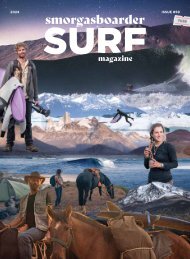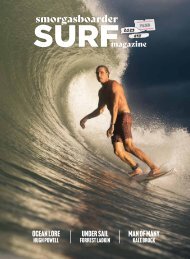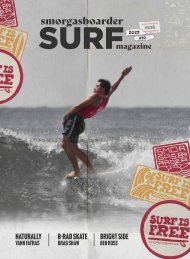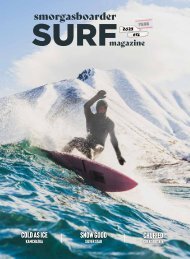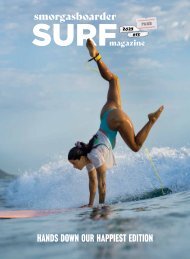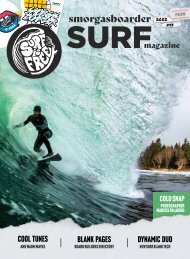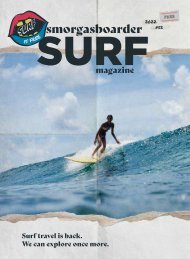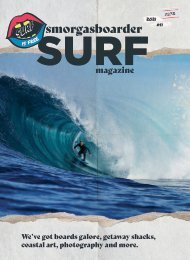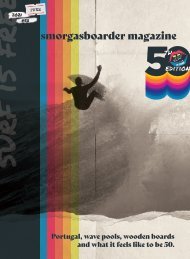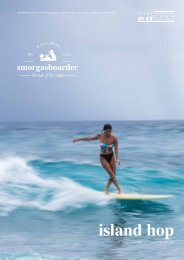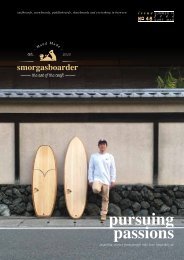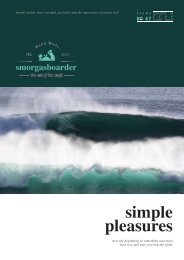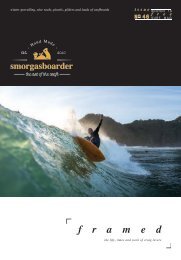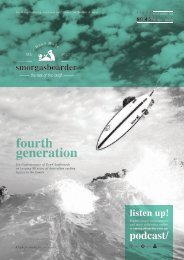SB_issue54_digital
Create successful ePaper yourself
Turn your PDF publications into a flip-book with our unique Google optimized e-Paper software.
“I came to realise what I was doing was good<br />
for the environment because the boards I was<br />
making lasted so much longer. I had always been<br />
environmentally conscious in my approach, but this<br />
just strengthened my belief in what I was doing and<br />
how I went about my business. It also encouraged<br />
me to find out about and adopt other ecologically<br />
sound materials, products and approaches.”<br />
Mark set out to find material that complemented the<br />
balsa he sources from sustainable farms. The first<br />
point of call was of course the internal foam blank.<br />
He settled on 100% recycled EPS foam and has<br />
stuck with them since.<br />
The blanks go through a process called<br />
regranulation. Scrap pieces of packing foam from<br />
fridges, TVs and the like are ground up, pumped<br />
into a mould and heated. Once ejected from the<br />
mould they are shuttled into large gas oven drying<br />
rooms. Mark then shapes the blank before a 2-3mm<br />
balsa veneer is vacuum-bagged (laminated) onto<br />
the blank providing added strength. Solid rails are<br />
then added to the board and the shape is further<br />
refined with some light sanding before being<br />
glassed, finished and polished.<br />
Mark further continued to work towards reducing<br />
his environmental footprint. All foam offcuts from<br />
his boards go back into his recycled EPS foam mix.<br />
Waste from his solid balsawood boards is used as<br />
garden compost and usable offcuts are donated to<br />
schools. The glues he uses contain no volatile or<br />
flammable ingredients and his vehicles converted to<br />
LPG to reduce the amount of fuel consumed. He is<br />
also an active member of the Rainforest Alliance; an<br />
organization that works to arrest the major drivers of<br />
deforestation and environmental destruction and to<br />
further his commitment to responsible, sustainable<br />
harvesting of balsawood, Mark even set up his own<br />
balsa plantation in Cooktown near Port Douglas in<br />
North Queensland. Now Mark is looking to certify<br />
the carbon footprint of each of the surfboards he<br />
produces.<br />
“Various estimates put the carbon footprint of a<br />
traditional PU surfboard at around 250kg of carbon.<br />
<strong>SB</strong> / #54 / 28



